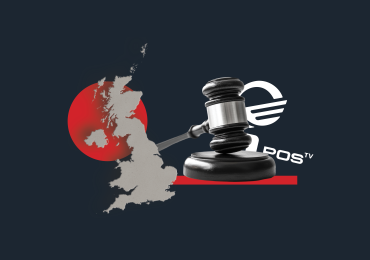After data on Thursday showing that the U.S. economy is on the cusp of a recession, this Friday’s monthly employment report will be even more highly anticipated than usual. The report is expected to show that the labour market remains robust, despite reports that some companies are cutting jobs and freezing hiring. Investors will also continue to digest a slew of earnings results with dozens of companies set to report in the coming week. Several Fed officials are set to speak, and their comments will also be closely watched. Meanwhile, the Bank of England is expected to accelerate the pace of rate hikes as it steps up efforts to curb inflation. Here’s what you need to know to start your week.
Nonfarm Payrolls
Friday’s nonfarm payrolls report for July will show whether the recent barrage of Fed rate hikes has impacted the labour market.
Analysts expect the economy to have added 250,000 jobs in July, moderating from June’s pace of 372,000, while the unemployment rate is expected to hold steady at a historic low of 3.6%.
A smaller than expected number could bolster the view that the Fed may not be as aggressive as expected when it comes to interest rate hikes after Fed Chair Jerome Powell said last week that the central bank’s September rate decision would be data-dependent.
The Fed hiked rates by 0.75% on Wednesday, the second hike in a row of that size.
After data last Thursday showed the U.S. economy contracted in the second quarter, equity markets were boosted by bets that interest rates would rise more slowly.
Fedspeak
Investors will get a chance to hear from several Fed officials this week, including Chicago Fed President Charles Evans, St. Louis Fed President James Bullard and Cleveland Fed President Loretta Mester. Their comments will be watched for any indications that a smaller rate hike may be on the cards in September after recent data pointing to economic weakness.
Given mounting fears over the prospect of a recession, market watchers will also be paying particular attention to the Institute of Supply Management’s manufacturing PMI on Monday and the ISM services PMI on Wednesday, which are both expected to confirm that the economy is slowing.
The U.S. is also to release data on JOLTS job openings on Tuesday. While job openings have been easing in recent months, they are expected to remain at elevated levels.
Earnings Deluge
Some better-than-expected earnings reports helped boost stocks last week, and the deluge of earnings results is set to continue in the coming week with a broad range of companies, including Activision Blizzard (NASDAQ:ATVI), Caterpillar (NYSE:CAT), Uber (NYSE:UBER) and Eli Lilly (NYSE:LLY) reporting.
Positive forecasts from Apple (NASDAQ:AAPL) and Amazon (NASDAQ:AMZN) on Friday showed resilience in giant companies to survive an economic downturn.
Second-quarter U.S. corporate results have mostly been stronger than expected. Of the 279 S&P 500 companies that have reported earnings so far, 77.8% have exceeded expectations according to Reuters data.
Other companies reporting during the week include Loews (NYSE:L), Dupont De Nemours (NYSE:DD), Starbucks (NASDAQ:SBUX), Airbnb Inc (NASDAQ:ABNB), Advanced Micro Devices (NASDAQ:AMD), PayPal (NASDAQ:PYPL), Booking Holdings (NASDAQ:BKNG), eBay (NASDAQ:EBAY), CVS Health (NYSE:CVS), Moderna (NASDAQ:MRNA), Under Armour (NYSE:UAA), AMC Entertainment (NYSE:AMC), Yum! Brands Inc (NYSE:YUM), Robinhood (NASDAQ:HOOD) and Restaurant Brands (NYSE:QSR).
Stocks Rally
U.S. stocks added to their recent rally on Friday, with all three major indexes gaining for the month and for the week.
The S&P 500 gained about 9.1% for July in its biggest monthly percentage gain since November 2020, while the Nasdaq jumped about 12.3% in July in its biggest monthly gain since April 2020.
Stocks were boosted by mainly upbeat earnings reports, along with investor speculation that the Fed may not need to be as aggressive with interest rate hikes as some had feared.
Despite the positive end to the month for stocks, Mark Haefele, chief investment officer at UBS Global Wealth Management, told Reuters that investors should proceed with caution, noting: “In the near term, we think the risk-reward for broad equity indexes will be muted. Equities are pricing in a ‘soft landing,’ yet the risk of a deeper ‘slump’ in economic activity is elevated.”
Bank of England to Accelerate Rate Hikes
The Bank of England is widely expected to hike rates by half a percentage point at its meeting on Thursday, which would be its largest hike since 1995.
Only three BoE officials voted in favour of a 0.5% rate hike at the bank’s last two meetings, but data since then has shown inflation hitting a four-decade high of 9.4%. It could hit 12% by October – six times the BoE target.
Governor Andrew Bailey has pledged to act forcefully if needed to get inflation down.
Elsewhere, the Reserve Bank of Australia is expected to hike rates by 0.5% at its upcoming meeting on Tuesday with inflation Down Under running at 6.1%, more than double the RBA’s 2-3% target.

















